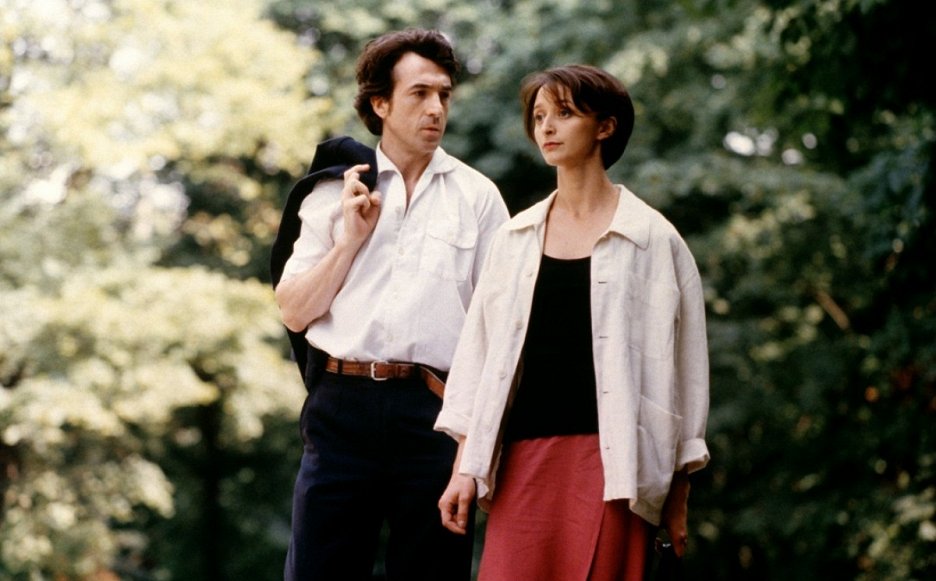 Image courtesy of France Channel, “Les apprentis,” (1995) dir. Pierre Salvadori
Image courtesy of France Channel, “Les apprentis,” (1995) dir. Pierre Salvadori
In a world obsessed with speed, productivity, and constant motion, the French remain proudly devoted to something more elusive — the art of doing nothing. But “nothing” in France isn’t empty time; it’s an act of presence, curiosity, and quiet rebellion.
They even have a word for it:flânerie — the delicate art of wandering without purpose, simply observing the beauty of life unfolding.
What Is Flânerie?
The term flâneur first appeared in 19th-century Paris, popularized by writer Charles Baudelaire. He described the flâneur as an “urban explorer,” a person who strolls through the city not to get somewhere, but to absorb its poetry — the rhythm of footsteps, the play of light on wet streets, the hum of conversation at a café terrace.
To flâner is to drift — to lose track of time, to walk slowly enough for thoughts to wander, to notice the world instead of rushing through it.
It’s both a philosophy and a way of seeing: a celebration of slowness, attention, and gentle curiosity.
The Café: A Stage for Stillness
If flânerie has a home, it’s the Parisian café.
Here, doing nothing is a ritual art form. One orders a coffee not for caffeine, but for the excuse to sit — for as long as one likes — watching the world pass by. The waiter never hurries you; time stretches, life flows.
Writers like Hemingway, Simone de Beauvoir, and Camus all practiced this kind of stillness — notebook in hand, cigarette nearby, observing. In the café, one becomes part of the scenery: the quiet hum of conversation, the clink of cups, the soft rain outside.
To sit, to look, to think — this is flânerie at its finest.
The Gentle Art of Wandering
Unlike sightseeing, flânerie has no checklist. You don’t walk to see the Louvre; you walk to see what happens on the way. It’s about discovery without agenda — following a scent of bread from a boulangerie, or turning left because the light hits a façade just so.
In a sense, flânerie is mindfulness before mindfulness had a name. It teaches awareness through leisure, and observation through movement.
A flâneur doesn’t conquer the city; they let the city reveal itself — one cobblestone, one café, one glance at a passing stranger at a time.
Doing Nothing — The French Way
While other cultures might label stillness as laziness, in France it’s something else entirely — it’s savoir-vivre, the art of knowing how to live well.
Taking time is woven into the French rhythm:
-
Long lunches that stretch into conversations.
-
Sunday strolls through gardens or markets.
-
Reading in the park, unbothered by the passing hours.
In a society that glorifies productivity, the French quietly remind us that reflection and pleasure are also forms of intelligence. Time spent simply being is never wasted — it’s what makes life rich.
Flânerie as a Cultural Mirror
Historically, flânerie was not just leisure but a lens for understanding modern life. The 19th-century flâneur observed Paris as it transformed — from quiet alleys to grand boulevards — and became the silent chronicler of urban change.
Writers, painters, and philosophers embraced this role. The flâneur became the symbol of sensitivity, of seeing beauty in the ordinary. Today, with smartphones and maps guiding every step, flânerie feels almost radical — a return to mystery in a hyper-connected world.
How to Practice Flânerie Today
You don’t need to live in Paris to live like a flâneur. Here’s how to bring a little French art de rien faire — the art of doing nothing — into your daily life:
-
Walk without a destination.
Leave your phone in your pocket. Let curiosity, not Google Maps, guide you.
-
Sit in a café alone.
Order one drink. Stay as long as you like. Watch, listen, notice.
-
Observe ordinary beauty.
A reflection in a puddle, the smell of bread, the sound of laughter — these are the quiet luxuries of life.
-
Take your time.
Resist the urge to rush. The slower you move, the more the world reveals itself.
-
Embrace boredom.
In France, boredom is not failure; it’s a door to imagination.
Why It Still Matters
Flânerie isn’t nostalgia — it’s resistance.
In an era where attention is currency and speed is status, the simple act of walking slowly, of not having a plan, becomes a declaration of freedom.
The French have always understood that life isn’t something to be optimized — it’s something to be savored. Every unplanned moment is a small rebellion against hurry, a quiet rediscovery of joy.
So the next time you find yourself in Paris — or any city — put away your itinerary. Step outside, unhurried. Let the streets decide your story.
That, after all, is the secret the French have known all along: sometimes, doing nothing is doing everything.